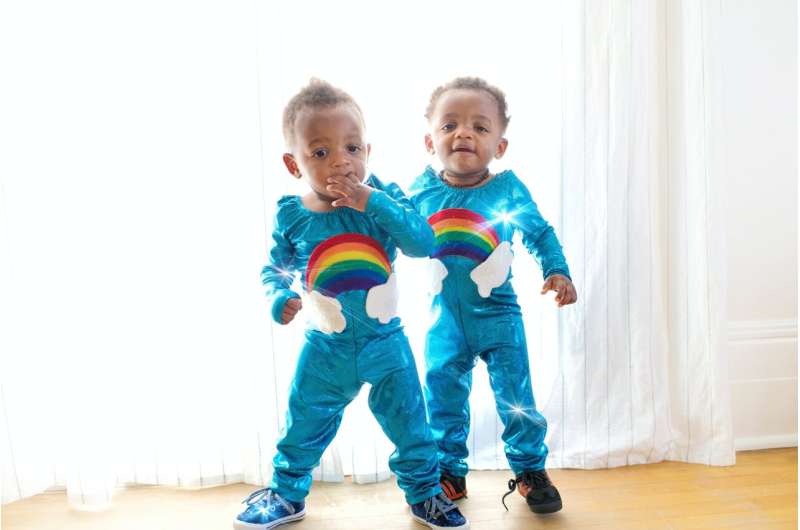This article has been reviewed according to Science X's editorial process and policies. Editors have highlighted the following attributes while ensuring the content's credibility:
fact-checked
proofread
How identical twins influence each other's self-perception

Whenever people learn together with others, they draw comparisons. Usually, a contrast effect occurs that immediately affects one's perception of one's own academic abilities. If others perform better, one assesses one's own abilities as worse. If others perform less well, one perceives oneself as more talented and capable. These contrast effects have been confirmed repeatedly in various studies.
Now researchers at the Hector Research Institute of Education Sciences and Psychology at the University of Tübingen have found a significant exception. In the case of identical twins, the comparison effect becomes a mirror effect. The performance of one twin has an equalizing effect rather than an opposing effect for the other twin.
So if one twin is good in a school subject, this has a positive effect on the other twin's view of her or his own performance in the same subject. Conversely, poor performance by one twin has a negative effect on the other's view of her/his own ability in the subject.
Self-concept includes the views of one's own performance in a subject, which are shaped both by the actual performance and by the processing of numerous other pieces of information. For the study, the researchers analyzed data from more than 4,000 identical and non-identical twins between the ages of 11 and 17 from the TwinLife study in Germany. In some cases, both twins attended the same school class, in others they did not. The research is published in the journal Contemporary Educational Psychology.
The study also showed that the mirror effect is not found in non-identical twins. "This suggests that only moderate similarity is not sufficient for the mirror effect to occur; that the degree of similarity must be exceptionally high," says Ulrich Trautwein, director of the Hector Research Institute of Education Sciences and Psychology and co-author of the study. "In fact, a certain degree of competition is often found in non-identical twin relationships; this may counteract any mirror effects."
Trautwein emphasizes that "Comparison effects are a universal phenomenon that has crucial consequences for many issues in everyday school life, such as ability grouping—when students are divided into groups according to their abilities—or the feedback behavior of teachers. With the mirror effect, we were able to make a further contribution to a better understanding of the academic self-concept."
More information: Yeeun Kim et al, What Happens With Comparison Processes When "the Other" is Very Similar? Academic Self-Concept Formation in Twins, Contemporary Educational Psychology (2022). DOI: 10.1016/j.cedpsych.2022.102138


















